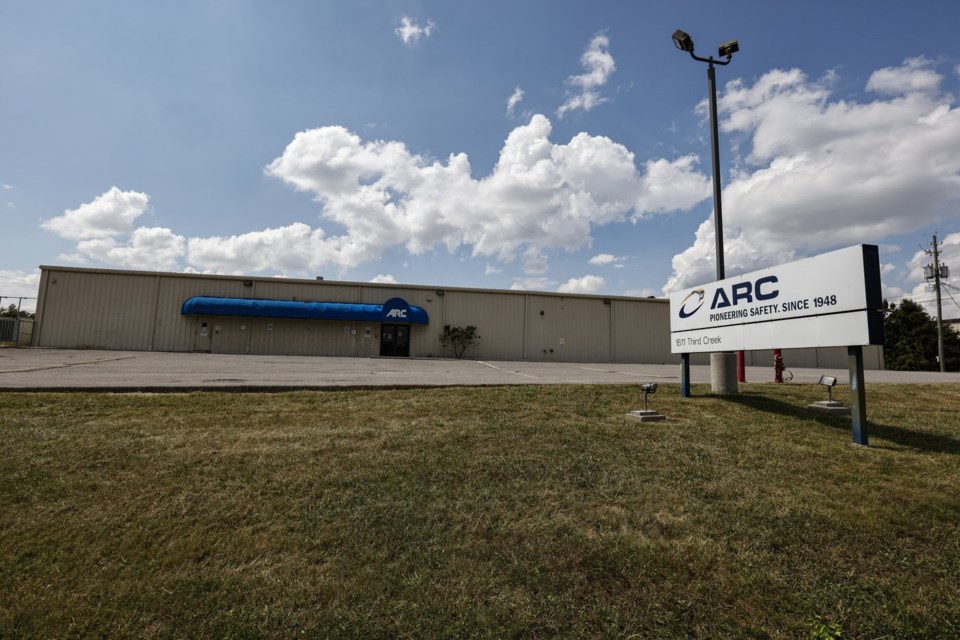DETROIT (AP) — U.S. auto safety regulators say they stand by a conclusion that more than 50 million air bag inflators and should not be in use, taking another step toward a massive recall.
The decision Wednesday by the National Highway Traffic Safety Administration involves inflators made by and another parts manufacturer. It comes despite opposition from automakers.
The inflators in about 49 million vehicles from 13 manufacturers can into drivers and passengers.
The agency has said the inflators are responsible for at least seven injuries and two deaths in the United States and Canada since 2009.
NHTSA said seven of the inflators have blown apart in the field in the U.S., each showing evidence of insufficient welds or too much pressure in a canister designed to contain the explosion and fill the air bags in a crash.
In addition, the agency said 23 inflators have ruptured in testing with causes common to the inflators that blew apart in the field. Also, four inflators have ruptured outside the U.S., killing at least one person, the agency said.
“To be sure, the overwhelming majority of the subject inflators will not rupture upon deployment,” NHSTA wrote. “However, based on the evidence linking past ruptures to the same friction welding process, all of the subject inflators are at risk of rupturing.”
But several automakers argued in public comments that years of investigations by NHTSA did not establish a systemic design defect. Some said none of the millions of inflators in their vehicles have ruptured due to the cause pointed out by the agency.
NHTSA said the only way to know which of the ARC-designed inflators will blow apart is for them to deploy in a crash. The federal motor vehicle safety act “does not allow such a defect to go unaddressed,” the agency said.
The agency will take comments again for 30 days, then use them to make a final decision on whether to pursue the massive recall. If it makes a final determination that the inflators are defective, it will order ARC and automakers to recall them. It also could wind up suing to force a recall.
A message was left Wednesday seeking comment from ARC of Knoxville, which was acquired in 2016 by Yinyi Group of China.
Regulators asked ARC in April of 2023 to recall the inflators, but the company a full-scale recall, setting the stage for the possible court fight.
NHTSA held a public hearing in October, where it appeared ready to seek the recall .
It contends that byproducts from welding during manufacturing can clog a vent in the canister that is designed to let gas escape to quickly fill air bags. In the defective products, pressure can build to the point where the canister is blown apart.
Injuries caused by the shrapnel can be gruesome, and the inflators pose an unreasonable risk of serious injury or death to drivers and passengers, the agency has said.
But ARC and many automakers oppose a recall, with several manufacturers saying the problem happens so infrequently that NHTSA has not established that a safety defect exists. Recalling 50 million vehicles would cost millions.
Fiat Chrysler Automobiles, a unit of Stellantis, for instance, wrote in comments that there has never been an inflator rupture in an FCA vehicle that matches NHTSA’s theory on why the inflators are defective. The company said it has 4.9 million older vehicles on the road with driver and passenger inflators made by ARC.
An inflator in a 2002 Chrysler Town and Country minivan did blow apart in 2009, but ARC determined that one had a unique cause not found in other ruptures, FCA wrote. “In the 14 years following that event, there have been no further incidents in an FCA U.S. vehicle,” the company wrote.
Vehicles from BMW, Stellantis, Ford, General Motors, Hyundai, Jaguar-Land Rover, Kia, Maserati, Mercedes, Porsche, Tesla, Toyota, and Volkswagen all have inflators made by ARC or parts supplier Delphi. A complete list of vehicles with the inflators has not been released. Delphi made about 11 million of the inflators under license from ARC.
Automakers have issued smaller recalls of ARC inflators over the years, with GM leading the way at more than 1 million vehicles. The smaller recalls, NHTSA said, were done on the premise that there was a manufacturing problem during a short time at a particular factory.
But NHTSA said its investigation showed that ruptures happened in inflators made across time periods, plants and manufacturing lines.
The agency said that starting in 2017, ARC began adding an automated scope to inspect inflators and check for debris that may block openings. The agency wrote that it knows of no inflator ruptures in the field among those inspected by the scope. The inflators that NHTSA wants to recall were all made before the scope process was fully implemented.
ARC has contended in documents that the manufacturing processes may not completely eliminate the risk of isolated failures. The federal safety act protects against unreasonable risks and “does not require vehicles and equipment to never experience a failure in the field," the company wrote.
One person who died after an ARC inflator explosion was from Michigan’s Upper Peninsula. She was struck by metal fragments when her 2015 Chevrolet Traverse SUV was involved in a minor crash in 2021. Beaudoin and four of her sons had been on their way to get ice cream. The sons were not hurt.
Tom Krisher, The Associated Press


